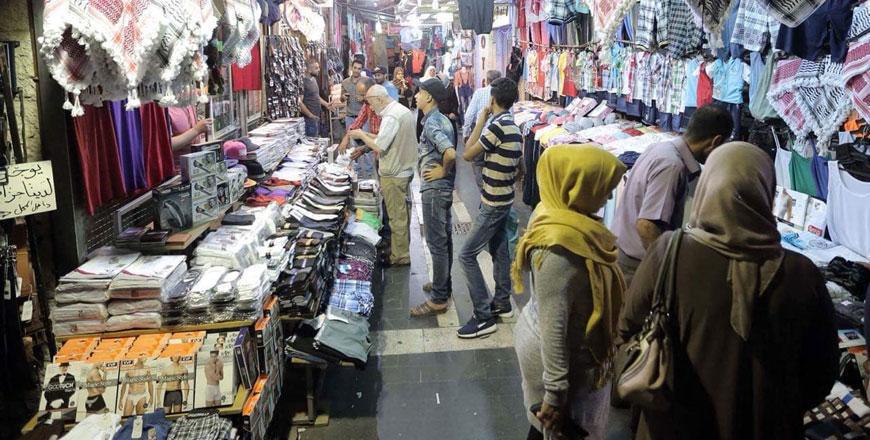You are here
Clothing, footwear imports drop 25% in 2020 — sector representative
By Bahaa Al Deen Al Nawas - Dec 19,2020 - Last updated at Dec 19,2020
AMMAN — The clothing sector continues to suffer from the repercussions of the coronavirus crisis despite winter, Christmas and New Year seasons and holidays, a sector representative said on Saturday.
At this time of the year, retail shops fill their stocks of clothes and footwear in anticipation of large market demands, Asaad Qawasmi, a representative of the clothing, garment and jewellery sector at the Jordan Chamber of Commerce said.
“This year, we have not seen such an activity, sales volume is the lowest ever,” Qawasmi told The Jordan Times, noting that the diminishing purchasing power and conservative consumer attitude resulted in stocks piling up.
“Consequently, retailers have not been able to pay their dues and have become greatly worried about their returned cheques, the thing that reflected negatively on wholesalers,” Qawasmi added.
The representative reiterated the suffering of the sector throughout this year with the developments of the pandemic, noting that the crisis and the measures taken to combat it such as the closures, curfews and lockdowns have together caused “grave losses” to merchants, a lack of liquidity and increasing operational costs and bills.
The Kingdom’s imports of clothing are charged 47.5 per cent in customs, income and sales taxes and service fees, whereas footwear imports pay 58 per cent in fees and taxes on customs declaration, according to Qawasmi.
The Kingdom’s winter imports of clothing and footwear have dropped by 25 per cent this year, reaching a total of JD65 million compared with JD85 million last year, he noted.
Jordan’s imports of clothing and footwear come from Turkey and China as well as some Arab, European and Asian countries, he said, noting that the sector employs some 56,000 workers and has 11,000 operating facilities across the Kingdom.
Last month, Qawasmi told The Jordan Times that the uncertainty about the impact of the pandemic has shifted people’s priorities to become focused on food, medicine and other necessities.
Related Articles
AMMAN—A government decision to lower tariffs on garment and footwear imports is expected soon, according to Asaad Qawasmi, representative of
AMMAN — Imports of this year’s winter clothing and footwear dropped by JD10 million, going down to JD60 million compared with JD70 million d
AMMAN — Even with the advent of winter, the demand for warm clothing and footwear remains limited due to the continued partial and comprehen















